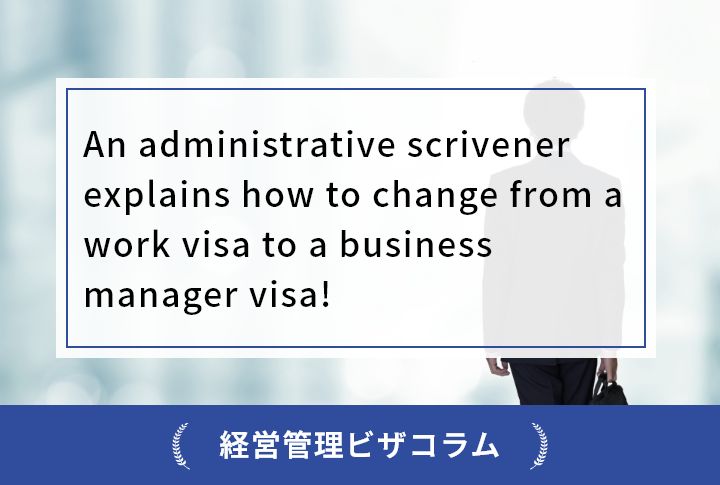How a sole proprietor obtains a business manager visa
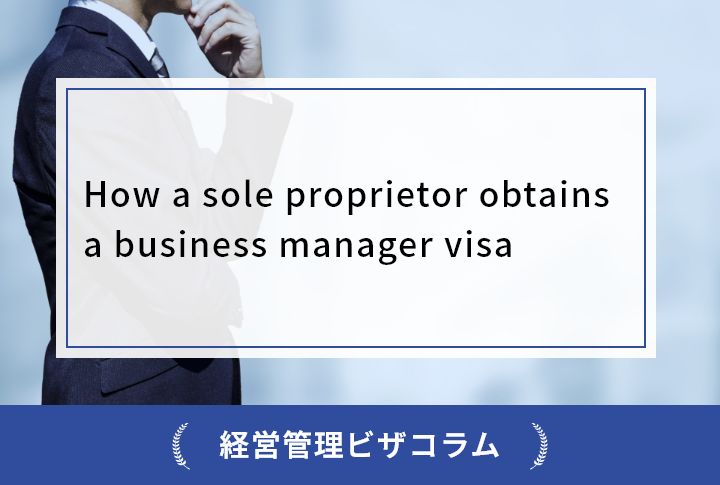
Many people set up a company before applying for a business manager visa.
To incorporate a company, you must prepare capital and necessary documents, and register the incorporation at a Legal Affairs Bureau. Judicial scrivener’s fees and a registration license tax (150,000 yen or more for incorporation of a stock company) will be charged at the time of registration. Since it’s expensive to create a company, some foreigners who wish to obtain a business manager visa try to do business as a sole proprietor without incorporating a company.
The Immigration Act does not prohibit business activities as a sole proprietor, so you can obtain a business manager visa without incorporating a company.
In this article, we will introduce how to obtain a business manager visa as a sole proprietor.
Index
1. Requirements for business manager visas for sole proprietors
For business manager visas, there are criteria concerning business activities, appropriateness of the business, and stability and continuity of the business (the eligibility for status of residence), as well as existence of an office and business scale (the conformity with the Ministerial Ordinance on Criteria for Landing Permission).
In this regard, the only difference between the company and sole proprietor is the criteria concerning business scale. In the provision concerning the status of residence of “Business Manager” in the Ministerial Ordinance on Criteria for Landing Permission, the criteria for business scale are specified as follows.
(a) the business is conducted by at least two full-time employees residing in Japan (except for foreign nationals residing in Japan with a status of residence listed in the left-hand column of the Appended Table I of the Act) other than those who operate or manage the business;
(b) the amount of the stated capital or the total amount of the contribution is least 5 million yen;
(c) the size of the business is found to be equivalent to the size set forth in (a) or (b).
You can choose from (a) to (c), but in case of a company, it is common to choose “(b) the amount of the stated capital or the total amount of the contribution is least 5 million yen.” To prove (b), you can just register incorporation by setting the capital amount as 5 million yen or more, so it is not difficult.
On the other hand, when applying for a business manager visa as a sole proprietor, since there is no concept of capital in the sole proprietorship, the scale of the business must be proved only by (a) (at least 2 full-time employees) or (c) (the size of the business is found to be equivalent to the size set forth in (a) or (b).”
2. How to prove business scale of sole proprietors
(1) What does it mean to have “at least 2 full-time employees”?
At least 2 full-time employees residing in Japan must engage in the business, in addition to foreigners who operate and/or manage the business.
The full-time employees here can be either Japanese or foreigners, but if foreigners, they must be a special permanent resident or have a status of residence of “Permanent Resident,” “Spouse or Child of Permanent Resident,” “Spouse or Child of Japanese National” or “Long-Term Resident.” The sufficiency of the business size can be proved by demonstrating that the sole proprietor has concluded employment contracts with full-time employees (by submitting employment contracts).
When starting new business, hiring two or more full-time employees from the beginning is quite difficult in light of business management. So, in practice, there are not many cases to use this standard.
(2) What is the meaning of “equivalent to the size”?
If you plan to obtain a business manager visa as a sole proprietor, to prove the sufficiency of business size, you must have a size equivalent to 5 million yen of capital or at least 2 full-time employees.
Here, “equivalent to the size” refers to the size where 5 million yen or more is invested in the business. In this case, 5 million yen or more is the total amount of funds invested in the human resources and physical equipment necessary to run a business.
Specifically, the following items are included.
(1) Funds for securing an office: initial costs such as security deposits and key money, renovation costs, equipment purchase costs, etc.
(2) Funds to maintain an office: rent for 1 year, management costs, etc.
(3) Salaries of staff: salary, bonus, etc. for 1 year (including salary of part-time staff)
You can accumulate these funds to show that the funds invested in the business are 5 million yen or more. Other than an office lease contract and employment contracts with the staff, we occasionally submit receipts issued for the purchase of furniture, personal computers, printers, and even pens.
It should be noted that the funds for purchasing a stock of merchandise cannot be included in the investment funds. For example, when running a trading business, the funds for purchasing goods cannot be included in the invested funds. This is because such funds are highly liquid and cannot be a yardstick to measure business scale.
3. Summary of how a sole proprietor obtains a business manager visa
In this article, we explained how to obtain a business manager visa as a sole proprietor.
Compared to companies, it is not easy for a sole proprietor to prove the sufficiency of business size, but of course it is not impossible. There are various merits in the corporate business form, but in terms of initial cost, the sole proprietorship is more advantageous.
For other requirements for a business manager visa, please refer to
“Business manager visa Requirements (1): Eligibility for Status of Residence” and
“Management Visa Requirements (2): Ministerial Ordinance on Criteria for Landing Permission.”
If you are thinking of starting a business, please consider which business form you would like to choose as well as the content of business.








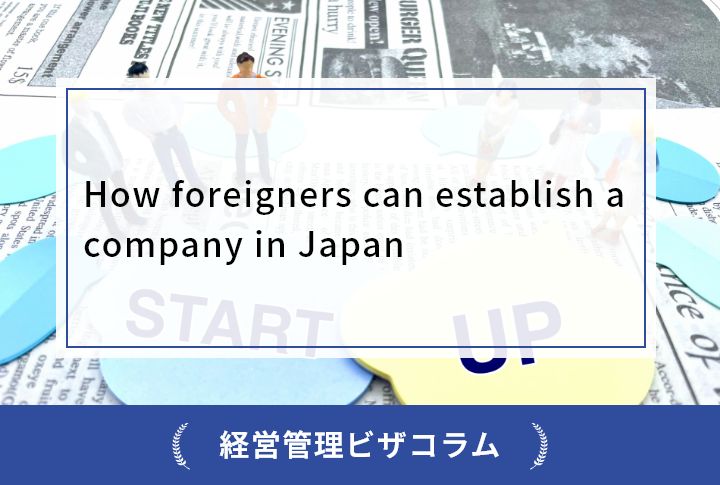
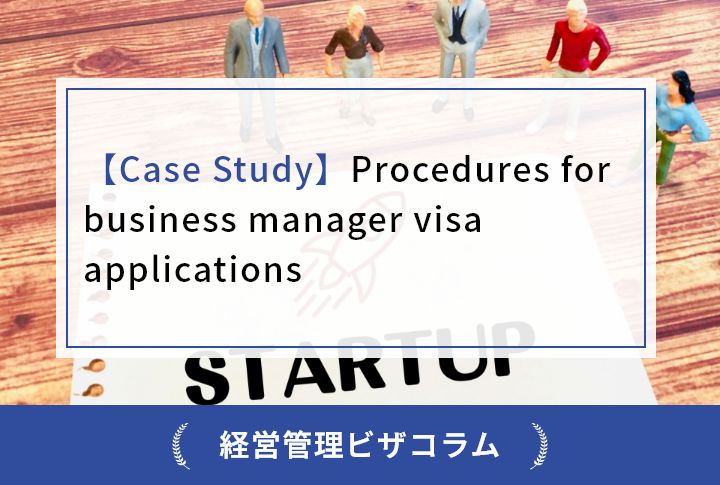
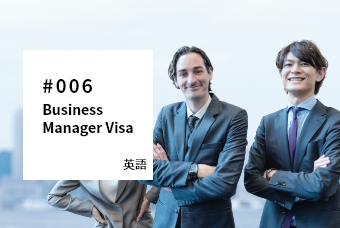
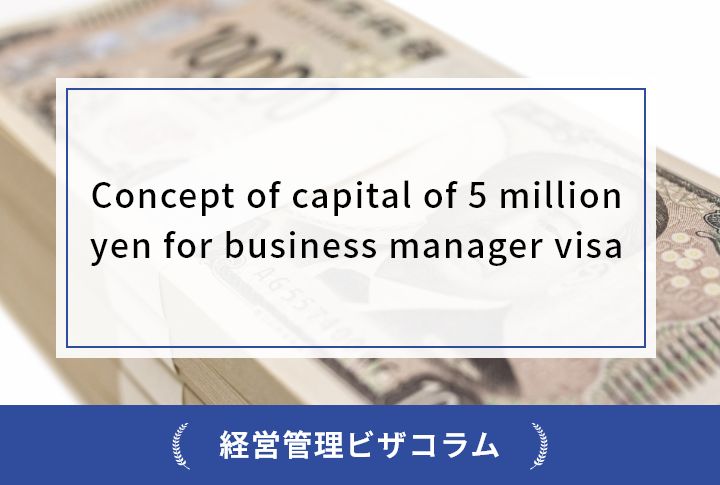
![[Business Manager Visa Requirements] Summary](https://dsg.or.jp/wp/wp-content/uploads/2020/02/en_52.jpg)
